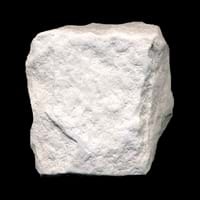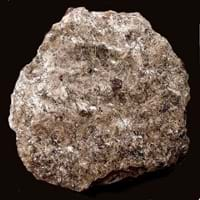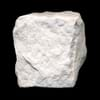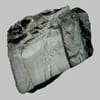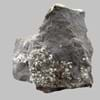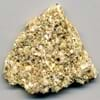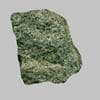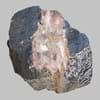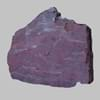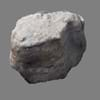Definition
Diatomite is a fine-grained sedimentary rock which is formed from consolidated diatomaceous earth
Schist is a medium grade metamorphic rock with medium to large, flat, sheet like grains in a preferred orientation
Discoverer
Unknown
Unknown
Etymology
From diatom + -ite1
From French schiste, Greek skhistos i.e. split
Class
Sedimentary Rocks
Metamorphic Rocks
Sub-Class
Durable Rock, Soft Rock
Durable Rock, Medium Hardness Rock
Group
Not Applicable
Not Applicable
Other Categories
Fine Grained Rock, Opaque Rock
Coarse Grained Rock, Fine Grained Rock, Medium Grained Rock, Opaque Rock
Texture
Clastic or Non-Clastic
Foliated, Platy
Color
Grey, White, Yellow
Black, Blue, Brown, Dark Brown, Green, Grey, Silver
Durability
Non-Durable
Durable
Appearance
Soft
Layered and Shiny
Interior Uses
Decorative Aggregates, Homes, Interior Decoration
Decorative Aggregates, Floor Tiles, Interior Decoration
Exterior Uses
Garden Decoration, Paving Stone
Garden Decoration, Paving Stone
Other Architectural Uses
Curbing
Not Yet Used
Construction Industry
As Dimension Stone, Cement Manufacture, Construction Aggregate, for Road Aggregate, Landscaping, Making natural cement, Source of calcium
As Dimension Stone, Building houses or walls, Cement Manufacture, for Road Aggregate, Roadstone
Medical Industry
Not Yet Used
Not Yet Used
Antiquity Uses
Artifacts
Artifacts
Commercial Uses
Alumina Refineries, Animal feed filler, As a Feed Additive for Livestock, Creating Artwork, Drawing on blackboards, Fire resistant, Gymnasts, athletes and mountain climbers use for grip, In aquifers, Soil Conditioner, To ignite fire, Used as a filter medium, Used as an insecticide, Whiting material in toothpaste, paint and paper
Used in aquariums, Writing Slates
Types
Not Available
Mica Schists, Calc-Silicate Schists, Graphite Schists, Blueschists, Whiteschists, Greenschists, Hornblende Schist, Talc Schist, Chlorite Schist, Garnet Schist, Glaucophane schist.
Features
Clasts are smooth to touch, Is one of the oldest rock, Smooth to touch, Very fine grained rock
Easily splits into thin plates, Smooth to touch
Archaeological Significance
Monuments
Not Yet Used
Not Yet Used
Famous Monuments
Not Applicable
Not Applicable
Sculpture
Not Yet Used
Not Yet Used
Famous Sculptures
Not Applicable
Not Applicable
Figurines
Not Yet Used
Not Yet Used
Formation
Diatomite rock formed from the skeletal remains of single celled plants called diatoms. When diatoms die, their skeletal remains sink to the bottom of lakes and oceans etc. hence forming diatomite deposit.
Schist formed by dynamic metamorphism at high temperatures and pressures that aligns the grains of mica, hornblende and other elongated minerals into thin layers.
Mineral Content
Calcite, Clay, Clay Minerals, Quartz, Sand
Alusite, Amphibole, Biotite, Chlorite, Epidote, Feldspar, Garnet, Graphite, Hornblade, Kyanite, Micas, Muscovite or Illite, Porphyroblasts, Quartz, Sillimanite, Staurolite, Talc
Compound Content
Ca, NaCl, CaO
CaO, Carbon Dioxide, MgO
Types of Metamorphism
Not Applicable
Not Applicable
Types of Weathering
Biological Weathering, Chemical Weathering, Mechanical Weathering
Biological Weathering, Chemical Weathering, Mechanical Weathering
Types of Erosion
Chemical Erosion, Coastal Erosion, Wind Erosion
Chemical Erosion, Coastal Erosion, Glacier Erosion
Grain Size
Very fine-grained
Medium to Fine Coarse Grained
Fracture
Not Available
Conchoidal
Porosity
Highly Porous
Highly Porous
Cleavage
Non-Existent
Slaty
Specific Gravity
2.3-2.4
2.5-2.9
Transparency
Opaque
Opaque
Density
2.49-2.51 g/cm3
2.8-2.9 g/cm3
Specific Heat Capacity
Not Available
Resistance
Heat Resistant
Impact Resistant, Pressure Resistant, Water Resistant
Deposits in Eastern Continents
Asia
Brunei, India, Indonesia, Malaysia, Singapore, Thailand, Vietnam
Afghanistan, Bangladesh, Bhutan, China, India, Japan, Kazakhstan, Malaysia, Pakistan, Russia, Thailand, Turkey, Vietnam
Africa
Cameroon, Chad, Ghana, Kenya, Malawi, Sudan, Tanzania, Togo, Zambia, Zimbabwe
Egypt, Ethiopia, Morocco, Nigeria, South Africa
Europe
England, France, Germany, Spain, United Kingdom
Austria, England, France, Georgia, Germany, Italy, Liechtenstein, Monaco, Norway, Slovenia, Spain, Sweden, Switzerland
Others
Not Yet Found
Not Yet Found
Deposits in Western Continents
North America
Canada, USA
Canada, Costa Rica, Cuba, Mexico, Panama, USA
South America
Colombia
Brazil, Colombia, Guyana
Deposits in Oceania Continent
Australia
Adelaide, New Zealand, Queensland, Tonga, Victoria, Yorke Peninsula
New South Wales, New Zealand, Queensland
All about Diatomite and Schist Properties
Know all about Diatomite and Schist properties here. All properties of rocks are important as they define the type of rock and its application. Diatomite belongs to Sedimentary Rocks while Schist belongs to Metamorphic Rocks.Texture of Diatomite is Clastic or Non-Clastic whereas that of Schist is Foliated, Platy. Diatomite appears Soft and Schist appears Layered and Shiny. The luster of Diatomite is dull while that of Schist is shiny. Diatomite is available in grey, white, yellow colors whereas Schist is available in black, blue, brown, dark brown, green, grey, silver colors. The commercial uses of Diatomite are alumina refineries, animal feed filler, as a feed additive for livestock, creating artwork, drawing on blackboards, fire resistant, gymnasts, athletes and mountain climbers use for grip, in aquifers, soil conditioner, to ignite fire, used as a filter medium, used as an insecticide, whiting material in toothpaste, paint and paper and that of Schist are used in aquariums, writing slates.
